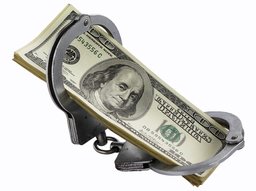 We all believed that debtor’s prisons were things of the past but in light of the recent arrest of an Illinois state citizen over a medical bill for $280 dollars, it’s apparent that debtor prisons have not yet resigned themselves to the history books.
We all believed that debtor’s prisons were things of the past but in light of the recent arrest of an Illinois state citizen over a medical bill for $280 dollars, it’s apparent that debtor prisons have not yet resigned themselves to the history books.
Lisa Lindsay, like many women in the United States contracted breast cancer. After surviving the ordeal she was sent a bill for $280. Lindsay was told she didn’t have to pay the bill as it was sent in error, yet the hospital sold the debt to a collection agency. State troopers then took her from her home in handcuffs by which time she ended up having to pay $600 to settle the charges. I have written on this subject before, but the instances of arrest have increased as debt collectors have gotten more aggressive.
The law in most states allows for the arrest of people for contempt of court. Contempt of court is what gives the court the ability to arrest those who don’t pay their child support. What happens in these cases is the collector getting an order for the debtor to perform some action (typically provide payroll records). When the debtor doesn’t provide them, they are found in contempt of court and a warrant is issued for their arrest. The problem is that in the cases where people are being arrested the vast majority of the debtor’s addresses for notice are incorrect. This leads to people being arrested for not providing documents they didn’t know they were ordered to provide. Some states, such as Illinois, are amending their procedures to require that these debtors be served with papers before an order of contempt can be issued. This should minimize arrests for those states, however most of them, including Florida, remain without these protections.













